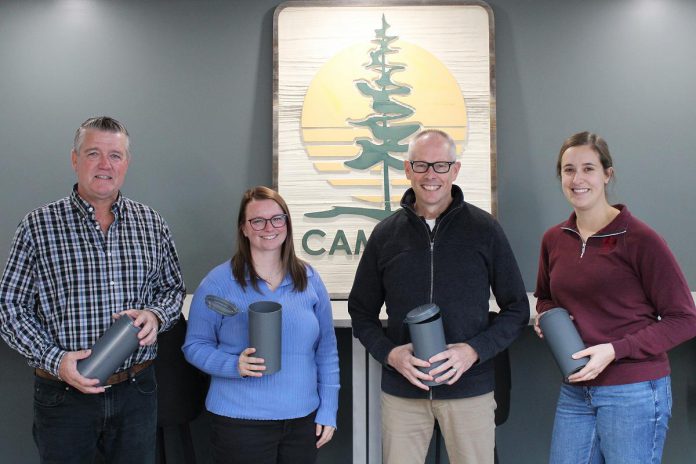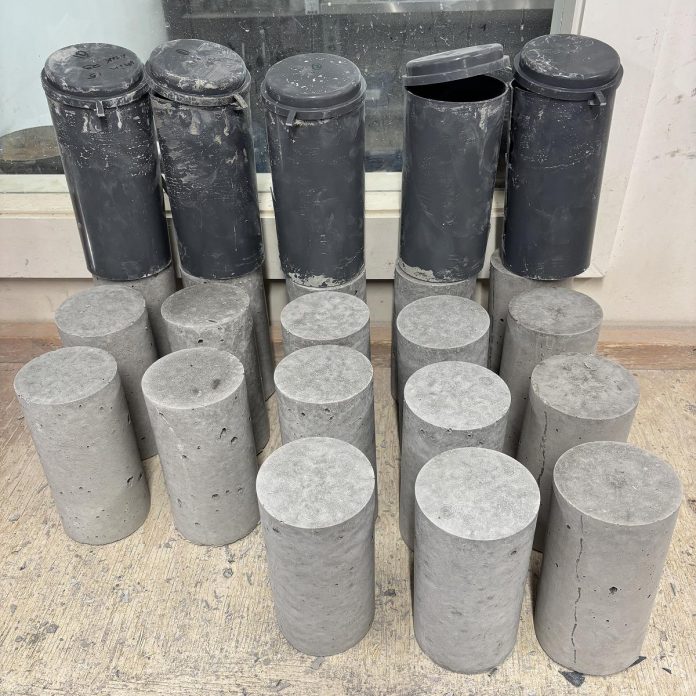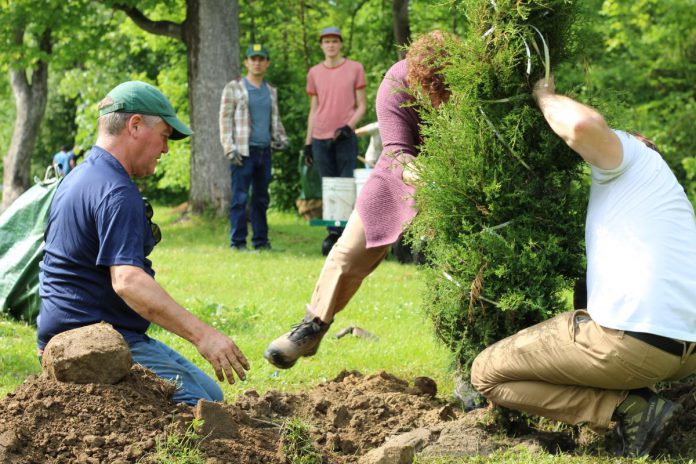
In 2022, to accompany festive fall gatherings and Halloween shenanigans, October was officially designated Circular Economy Month in Canada. Perhaps inspired by the conundrum of candy wrappers, this one-up on the former Waste Reduction Week is a call-to-action for businesses to get creative to reduce waste.
While the name is a bit on the dry side, the concept is an exciting one. The circular economy is based on the idea that with a little intention, tweaking, and collaboration, companies can come up with solutions that reduce their environmental impact while cutting material and disposal costs. This can result in standing out from competitors with sustainable practices, inspiring customer and community loyalty, and even identifying new revenue streams.
What does this mean for local small businesses — and where can they start?
For Cambium Consulting & Engineering, a Peterborough-headquartered engineering and environmental firm, it started with a single waste stream — cylindrical plastic molds used in their concrete lab — and a commitment to find a better end-of-life solution.
Cambium has a certified materials testing lab that uses 10,000 of these plastic molds per year to test concrete. By asking questions, the organization learned that rather than being recycled, the material was ending up in landfill.
To address this, Cambium embarked on a partnership with a plastics recycler. Together, the businesses created a recyclable mold made from the same plastic waste that was originally generated. Now, after one use, these molds are collected, recycled, and transformed into a brand-new mold, ready to go again.

Significantly, this innovation means 10,000 molds a year are diverted from landfill. Even more importantly, Cambium is showcasing an excellent example of circular thinking in practice: designing out waste, reusing materials, and reducing environmental impact, without sacrificing quality or productivity.
The system is efficient and scalable, with their new partners able to provide Cambium with ready-to-use molds within a week, ensuring uninterrupted lab operations.
Beyond just improving their own practices, Cambium’s model offers a blueprint for others, especially larger organizations that use high quantities of concrete molds. It’s a small change with potential for big, industry-wide impact.
“By proving that discarded plastic molds can be repurposed into CSA-approved reusable molds, we have introduced a circular approach to waste management within the construction testing and inspection industry,” says Jeff Hoskin, Cambium’s facilities and environmental health and safety manager.
As Circular Economy Month shines a spotlight on reducing waste and rethinking resource use, Cambium’s approach stands out as a practical, local success story. It’s proof that even niche waste problems can have circular solutions with the right partnerships and a commitment to sustainability.
To take part in the circular economy, businesses can start by identifying the types of waste they generate and confirming where that waste ends up. Beyond simply reducing the amount of waste generated, understanding what materials are being discarded and whether they’re truly being reused, recycled, or sent to landfill is the first step toward making meaningful changes.

From there, businesses can look for practical ways to reduce or eliminate waste, whether by reusing materials internally, or partnering with others to give materials a second life.
One of the more rewarding steps is building or joining networks where waste has value. A good starting point is to identify clean, consistent waste streams that could be used by others. Cambium reused its plastic waste within its own operations, but other local businesses can benefit from sharing materials with partners who can repurpose them.
Reaching out to schools, makerspaces, non-profits, or small manufacturers may lead to useful collaborations.
Locally, Green Economy Peterborough (who can direct inquiries to the nascent Circular Peterborough Collective), the Circular County Community Hub, and the Kawartha Manufacturers’ Association can help connect businesses with potential partners, while the Circular Opportunity Innovation Launchpad (COIL), Partners in Project Green, Loop, and the Canadian Materials Circular Economy Syndicate are worth exploring. Even business Facebook groups offer informal ways to match waste with need.
In other words, real change doesn’t always start with grand gestures. Sometimes, it begins with a little determination and a humble plastic mold. By treating waste as a resource, businesses can not only reduce their environmental impact but may also discover cost savings, new partnerships, and innovative opportunities.
Now, about those Halloween candy wrappers …
Cambium Consulting & Engineering is a member of GreenUP’s Green Economy Peterborough (GEP) program. Learn more about GEP at www.greeneconomypeterborough.ca.


























